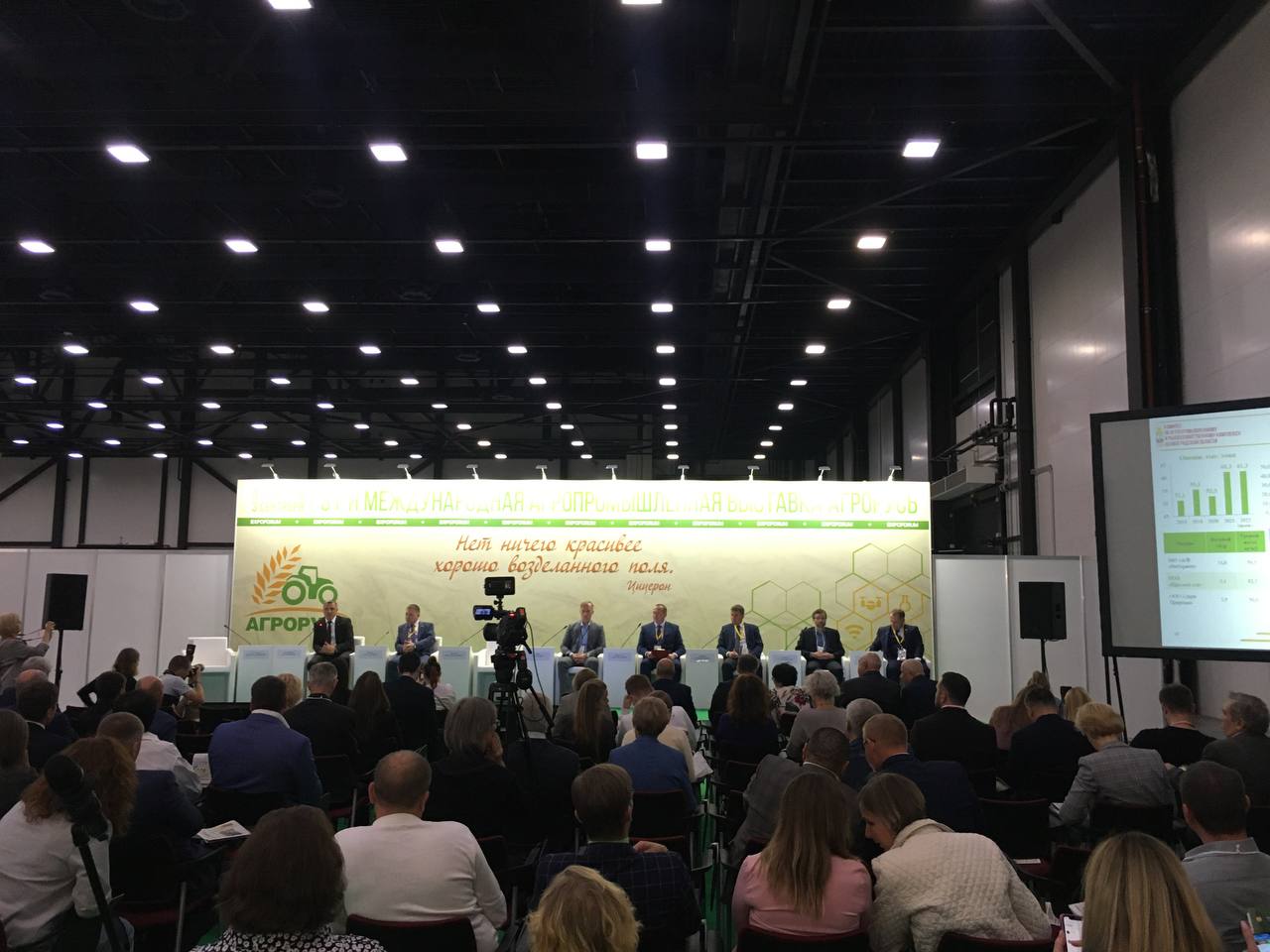nuzhno-razvenchivat-mify-na-agrorusi-prizvali-razreshit-gmo
At the plenary session Modern Approaches to Agriculture Development in Russia in the framework of the 31st International Agroindustrial Exhibition and Trade Fair Agrorus-2022 held in the ExpoForum, unique development projects in the field of AIC and achievements of agrarians of Leningrad Region were shared.
The plenary session was opened by Oleg Malashchenko, a Deputy Chairman of the Government of Leningrad Region, Chairman of the Committee for Agricultural and Fishery Complexes.
"Leningrad Region produces up to 50% of tea and coffee in Russia. It ranks first in Russia by the amount of eggs produced. Last year, that indicator approached 3.5 bln. pcs, and in the future we plan to reach the amount of 5 billions. The region leads by milk yield, and we plan to consolidate this leadership by increasing the amount of milk products by 5% after putting a new stock breeding complex, the largest one in the Northwest, into commission in the year end. The sum allocated for support of the AIC of Leningrad Region has exceeded 7 bln. rubles. Agriculture is a driver of the economic growth. The more we invest in it, the more profit for the budget we get," said Malashchenko.
Boris Efremov, a Deputy Chairman of the Vitebsk Regional Executive Committee, spoke on agriculture development in his region. According to him, in previous years, agroindustrial enterprises of Vitebsk Region operated upon the scheme when the manufactured products were delivered to the domestic market, to Russia, the EU and China in equal shares. Now though, there is a change of focus in order to ensure food security of the region and the country in general, while active cooperation with Russia continues.
Oleg Radin, President of the Soyuzkrakhmal Association, told about advanced grain processing in Russia and noted that the country still obviously lacks domestic manufacturing of amino acids and other critical elements of the food industry. Not to depend on import in this regard, it’s necessary to increase the volumes, to conduct scientific researches and to develop the country’s own technologies.
Andrey Ronzhin, Doctor of Engineering, professor of RAS, Director of the St. Petersburg Federal Research Center of the Russian Academy of Sciences, announced the latest development projects in the field of agriculture. For example, the Centre already makes robots that can identify rodents’ holes in the field with neural networks and put poison there, as well as send special drones with diffusors that identify the required amount of fertilizers for a certain piece of the field automatically.
Philipp Gannibal, PhD in Biology, Director of the All-Russian Institute of Plant Protection, made a suggestion to allow using genetically modified cultures in Russia.
"It’s time to lift the ban from GMOs on the legislative level. At least partially, for example, for plants that are not used in the food industry. It enabled rapid growth and development of agriculture. Propaganda needs to be conducted and myths about GMO need to be dispelled. It’s absolutely safe. GMO allows managing without any chemicals," said Gannibal.
The plenary session was finished with a speech of Vitaly Morozov, a Rector of the St. Petersburg State Agrarian University. He told about educational programs implemented in the University and noted that freshmen of SPbSAU made the right choice, since many of the alumni had become successful figures in the field of agriculture or held key positions in government agencies, including, for instance, Alexander Drozdenko, the Governor of Leningrad Region.
The 31st International Agroindustrial Exhibition and Trade Fair Agrorus-2022 takes place in ExpoForum from August 31 to September 3, from 10:00 to 19:00. There are free shuttle buses from the Moskovskaya metro station and a large parking lot for car owners. Visitors can enter the exhibition only by prior registration. See all the details on the official website.

 Calendar
Calendar
 Online application
Online application
 Map
Map
 How to get
How to get



